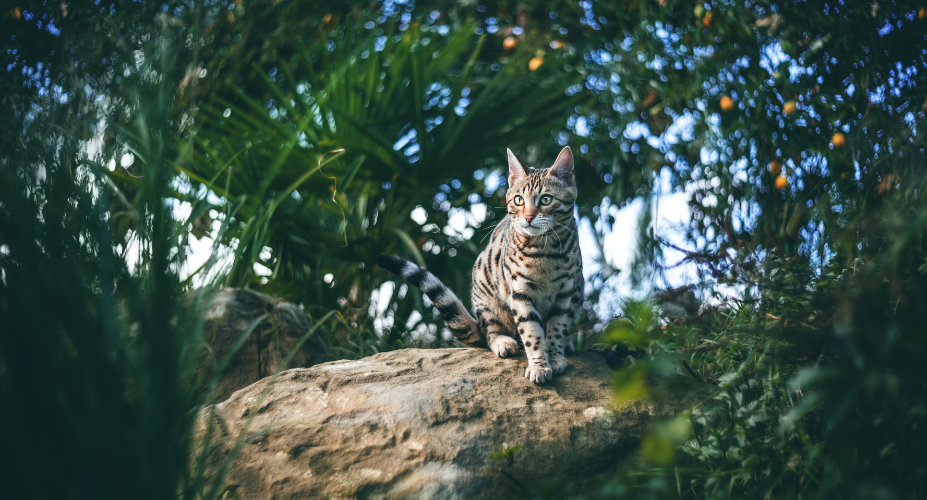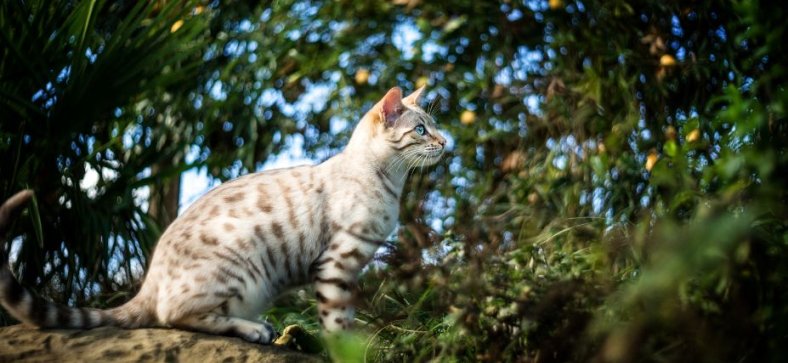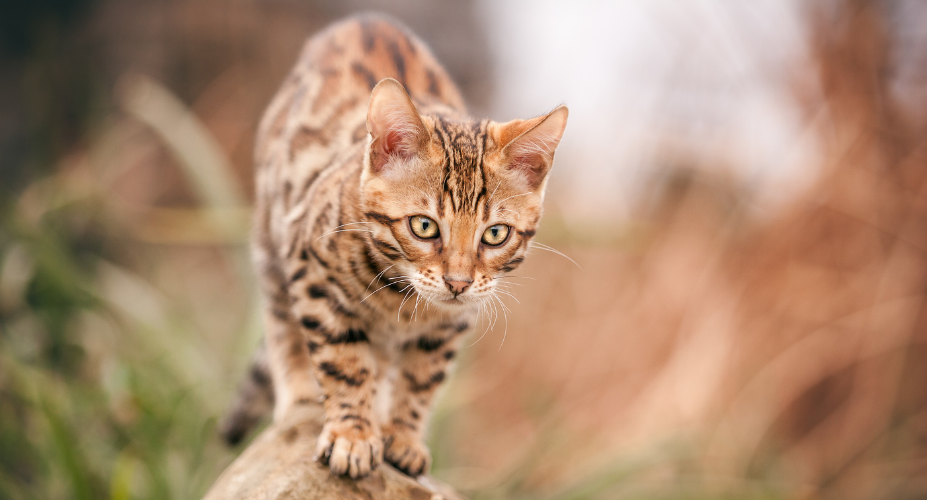Are Bengal Cats Legal in Minnesota? Understanding Regulations
Are Bengal cats legal in Minnesota? Yes, Bengal cats are generally legal in Minnesota. However, Minnesota statute 346.155 prohibits the possession of exotic cats, bears, and non-human primates, including any hybrids of these with domestic animals. This law primarily targets wild or exotic animals and their direct hybrids. Bengal cats, particularly those that are several generations removed from their wild ancestors (F5 and beyond), are considered domestic and are generally allowed.
Certain generations of Bengals, particularly those closer to their wild ancestors (F1 to F3 generations), may face restrictions or require specific permits to be legally owned. It's essential for potential Bengal owners in Minnesota to understand these regulations to ensure they comply with state laws.
Understanding Pet Laws in Minnesota
Navigating the intricate web of pet ownership laws in Minnesota can be a daunting task for any animal lover. The state's statutes provide a comprehensive framework that addresses various aspects of animal welfare and public safety. In Minnesota, pet owners are expected to adhere to a set of regulations that govern the keeping, breeding, and selling of pets, including dogs, cats, and exotic animals. These laws are designed to ensure that animals are treated humanely and that pet ownership does not pose a risk to the community.
For instance, Minnesota Statutes Annotated, Chapter 346, outlines the responsibilities of pet owners, which include maintaining health and ownership records for regulated animals and ensuring ongoing veterinary care.
It also specifies the conditions under which animals may be seized or impounded, and the exemptions that apply to certain institutions and individuals. Additionally, Chapter 347 focuses on dogs and cats, detailing the liability of owners for their pets' actions, licensing procedures, and the penalties for operating without a license or violating animal welfare rules.
Understanding these laws is crucial for current and prospective pet owners. It not only helps in providing the best care for their pets but also in avoiding legal complications that can arise from non-compliance. Whether you are looking to adopt a new furry friend or are already a pet parent, being informed about Minnesota's pet ownership laws is an essential part of responsible animal guardianship.
Are Bengals Legal in Minnesota?

Bengals, with their captivating leopard-like appearance, have garnered immense popularity as pets. However, their hybrid nature raises questions about their legality in various states, including Minnesota. Here's what you need to know:
Minnesota Pet Laws:
Minnesota statute 346.155 prohibits exotic cats, bears, and non-human primates, as well as any hybrid of the above with domestic animals. This regulation indicates that Bengal cats may face restrictions in the state.
Bengal Cat Generations:
Bengal cats are categorized by generations (F1 to F5 and beyond), with F1 being the closest to their wild ancestor, the Asian Leopard Cat. In many states, the first four generations (F1-F4) are subject to stricter regulations, while F5 and later generations are generally considered domestic.
Legal Status in Minnesota:
While the search results do not provide a direct answer to the legality of Bengals in Minnesota, they do suggest that Bengals with a generation of G5 and beyond are considered domestic and are generally legal. However, it is crucial to consult the most recent and official sources to ensure legal compliance.
Specific Regulations:
Minnesota does not have specific laws regulating Bengals, but the state's general exotic animal laws apply. It is essential to verify the generation of a Bengal and ensure that it meets the state's requirements for domestic animals
Factors Influencing Bengal Legality
When it comes to the ownership of Bengals, several factors play a crucial role in shaping the laws and regulations across different regions. Environmental concerns, safety issues, and health considerations are at the forefront of these influencing factors. Understanding how these elements impact the legality of Bengal ownership can provide valuable insights for prospective and current owners alike.
Environmental Concerns:
One of the primary reasons behind the strict regulations on Bengals, especially the early generations (F1-F4), is the potential threat they pose to local wildlife and ecosystems. Being part wild, these cats possess strong hunting instincts that could disrupt local fauna if they were to escape or be released into the wild. This concern is particularly significant in areas with vulnerable or endangered species. Consequently, some states implement stringent laws to prevent the possible ecological impact of these hybrid cats.
Safety Issues:

The safety of both the Bengals and the public is another critical factor influencing their legal status. Early-generation Bengals retain many of the wild characteristics of their Asian Leopard Cat ancestors, including unpredictable behavior and a higher level of aggression compared to fully domesticated cats. These traits can pose safety risks to owners and others, leading to regulations that restrict ownership to later generations (F5 and beyond) that are considered more domestic and manageable.
Health Considerations:
Health issues also play a role in the regulation of Bengal ownership. For instance, Hypertrophic Cardiomyopathy (HCM) is a significant health concern within the Bengal breed. This condition, which involves the thickening of the heart muscle, can lead to severe health problems and even sudden death. The potential for genetic diseases and the need for specialized veterinary care can influence the legal framework surrounding Bengals, as authorities aim to ensure that owners are capable of providing the necessary care for these animals.
Impact on Laws and Regulations:
These factors collectively contribute to the development of laws and regulations governing Bengal cat ownership. By addressing environmental, safety, and health concerns, lawmakers aim to ensure that the ownership of Bengals does not negatively impact local ecosystems, public safety, or the well-being of the cats themselves. As a result, prospective Bengal owners must navigate a complex legal landscape that varies significantly from one jurisdiction to another. Understanding these regulations is essential for ensuring compliance and promoting responsible pet ownership.
How to Legally Own a Bengal in Minnesota?
Here's a step-by-step guide to help you navigate the process:
- Research Bengal Cat Generations: First, familiarize yourself with the different generations of Bengals. In Minnesota, as in many states, regulations often focus on the first few generations (F1-F4) due to their closer lineage to wild ancestors. Generations F5 and beyond are typically considered domestic and are generally legal.
- Verify Legal Status: Check the current Minnesota statutes and local ordinances to confirm the legal status of Bengals, particularly if you are interested in earlier generations. While Minnesota statute 346.155 prohibits exotic cats, it's important to determine if Bengals fall under this category in your specific locality.
- Consult with Experts: Reach out to local animal control, veterinarians, or breed-specific organizations for guidance. These professionals can provide up-to-date information on any permits or registrations required for Bengal cat ownership in Minnesota.
- Choose a Reputable Breeder: If Bengals are legal in your area, select a reputable breeder who specializes in later-generation Bengals (F5 or beyond). These breeders should adhere to ethical breeding practices and provide registered pedigrees for their cats.
- Prepare Your Home: Ensure your living environment is suitable for a Bengal. These active and intelligent felines require space to play and explore, as well as mental stimulation to keep them engaged.
- Understand Ownership Responsibilities: Owning a Bengal cat comes with specific responsibilities. Be prepared for their high energy levels, potential health concerns, and the need for regular veterinary care.
By following these steps and ensuring compliance with state laws, you can enjoy the companionship of a Bengal in Minnesota while being a responsible and legal pet owner.
Consequences of Illegal Bengal Ownership

Owning a Bengal in Minnesota, or any state for that matter, comes with a set of responsibilities and legal obligations. The allure of having a mini leopard roaming your living room is undeniable, but it's crucial to understand the potential legal repercussions of owning a Bengal illegally in Minnesota. The consequences underscore the importance of compliance with state laws, ensuring both the safety of the community and the well-being of the cat.
- Legal Repercussions:
- In Minnesota, as in many states, the legality of owning a Bengal cat hinges on the generation of the cat relative to its wild ancestors. While the search results do not specify Minnesota's stance, they do highlight the general trend that owning early-generation Bengals (F1-F4) may face stricter regulations due to their closer genetic ties to wild cats. Violating these regulations can lead to several consequences:
- Fines: Owners found with Bengals that do not comply with state regulations may be subject to hefty fines. These fines are not just a slap on the wrist; they can be substantial enough to deter individuals from owning Bengals illegally.
- Confiscation: Perhaps more heart-wrenching than any fine is the possibility of your beloved pet being confiscated. If your Bengal is deemed illegal under state law, authorities have the right to remove the animal from your care.
- Permit and Registration Requirements: In some cases, owning a Bengal legally may require obtaining specific permits or registrations. This process can be cumbersome and may not always be successful, especially if the cat is of a generation too close to its wild ancestors.
Importance of Compliance:
The regulations surrounding Bengal ownership are not arbitrary. They are designed to protect the cat, the owner, and the community at large. Bengals, especially those of earlier generations, can exhibit behaviors and health issues stemming from their wild heritage. These can include aggression, a tendency to roam, and specific dietary and healthcare needs.
Compliance with state laws ensures that owners are prepared to meet these needs and are aware of the responsibilities that come with owning such an exotic pet. It also helps to protect local wildlife and maintain public safety by preventing potential incidents involving animals that may have unpredictable behaviors.
Are there any restrictions on owning other exotic animals in Minnesota?
In Minnesota, there are restrictions on owning exotic animals. The state prohibits the possession of wild cats, bears, non-human primates, and hybrids of these animals with domestic animals.
This means that it is illegal to possess lions, tigers, cougars, bears, or monkeys in Minnesota. Additionally, the Department of Natural Resources in Minnesota has recently outlawed 11 new animals due to them being invasive species.
These animals include jumping worms, mitten crabs, Nile perch, snakehead fish, walking catfish, tench, golden mussel, marbled crayfish, golden clams, tubenose gobies, and Eastern mosquitofish. It is essential to adhere to these regulations to protect the environment and prevent the spread of invasive species in the state.
Conclusion
The allure of owning a Bengal, with their striking appearance and dynamic personalities, is undeniable. However, the journey to responsible and legal ownership is paved with the need for due diligence, respect for legal frameworks, and a commitment to the well-being of these remarkable animals.
Understanding and following pet ownership laws not only protect the owners and their beloved pets but also ensure the safety and harmony of the broader community. As we navigate the complexities of living with these beautiful hybrids, let us do so with a sense of responsibility and a commitment to fostering a safe and nurturing environment for all.









Comments